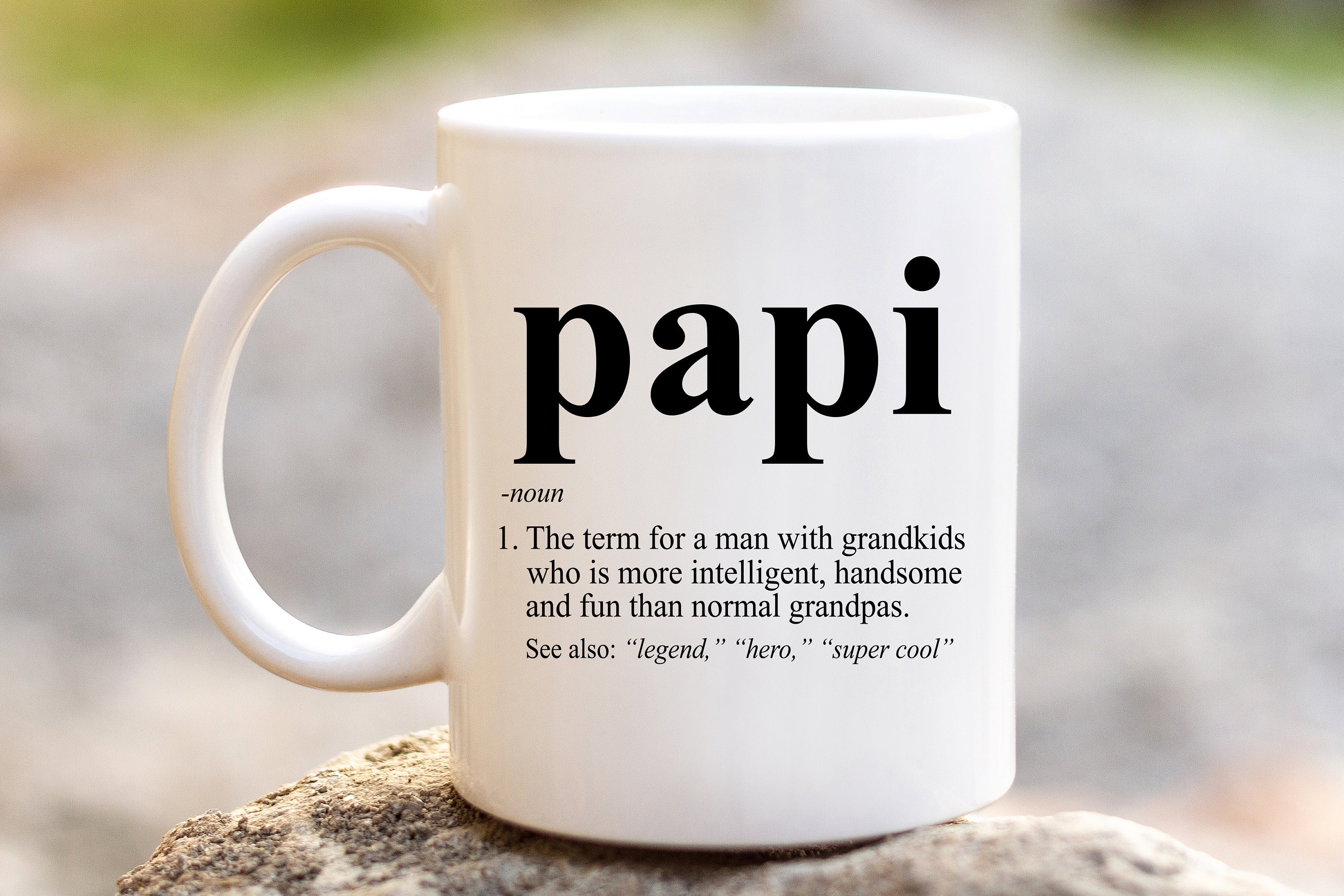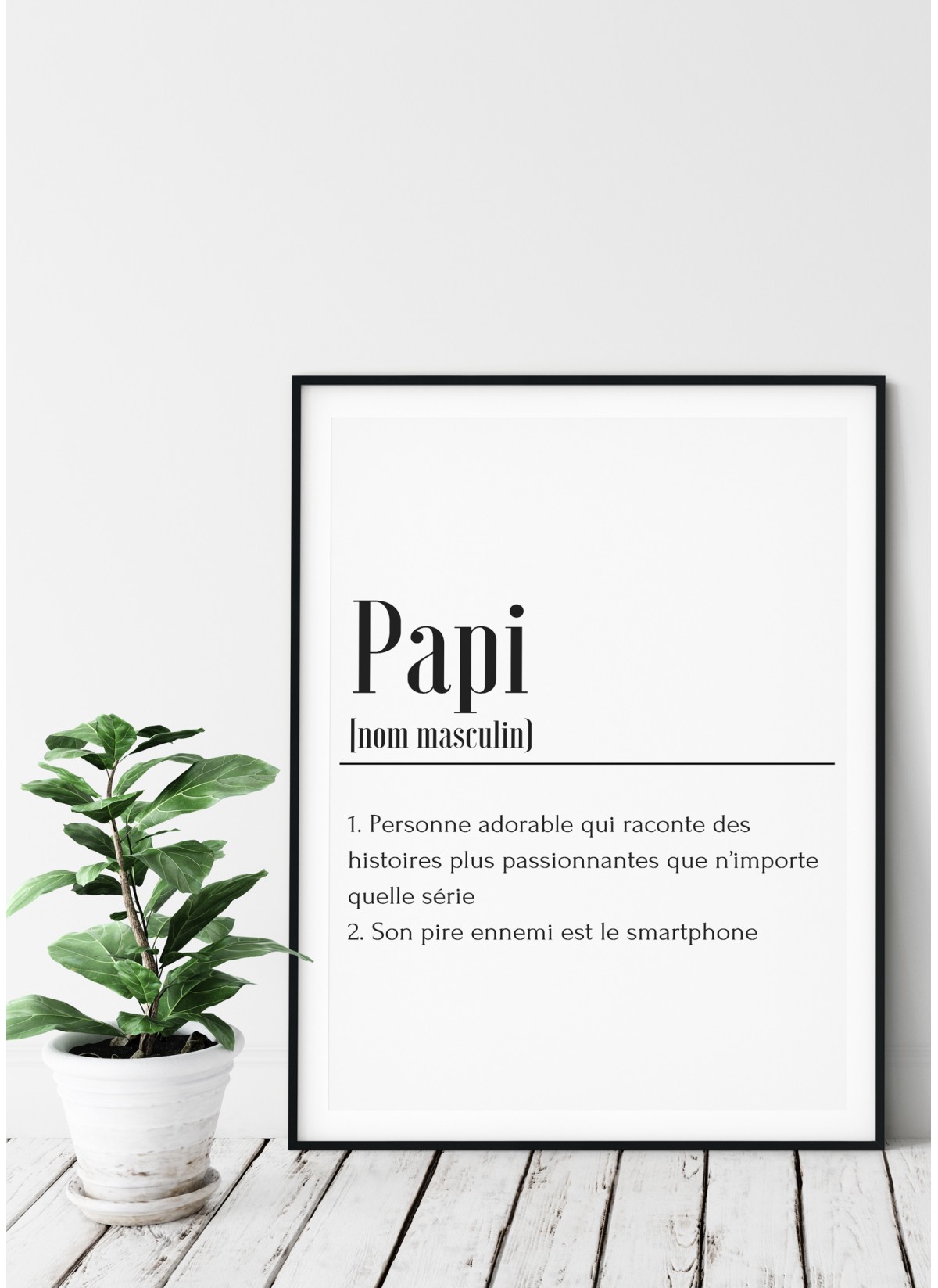What Does Papi Mean? The Ultimate Guide To Understanding The Term
Ever wondered what "papi" really means? Well, you're not alone! This term has been buzzing around social media, pop culture, and even everyday conversations. Whether you're hearing it for the first time or want to dive deeper into its meaning, we've got you covered. So, let's break it down and explore the world of "papi" together!
Nowadays, words evolve faster than ever, thanks to the internet and social platforms. "Papi" is one of those terms that started in a specific community but has now gone global. But what exactly does it mean? Is it just a cute nickname, or does it carry more significance? Stick around as we unravel its origins, usage, and cultural importance.
Before we dive deeper, let's address the elephant in the room: why should you care about "papi"? Well, understanding language trends helps you stay relevant and connect better with people from diverse backgrounds. Plus, it's always fun to learn something new, right? So, grab your favorite drink, and let's get started on this linguistic journey!
Where Did the Term Papi Come From?
Language evolves, and so do nicknames. The word "papi" traces its roots back to Spanish-speaking communities. In Spanish, "papi" is a casual way of saying "daddy." But don't let that confuse you! In modern usage, especially in English-speaking contexts, it has taken on new meanings and connotations. It's like when a word gets a cool makeover and becomes part of mainstream culture.
Interestingly, the term gained massive popularity through Latinx communities, particularly in urban settings. Over time, it spread beyond its original context and became a staple in LGBTQ+ culture, especially within drag and ballroom scenes. From there, it made its way into pop culture, thanks to influencers, celebrities, and social media platforms like TikTok and Instagram.
How Did Papi Become Mainstream?
Pop culture plays a massive role in shaping language trends. Celebrities like Cardi B and Bad Bunny have used "papi" in their music, bringing it to an even wider audience. Songs, memes, and viral videos all contributed to its mainstream adoption. Think of it as a snowball effect—once something catches on, it rolls and grows bigger and bigger.
Additionally, social media platforms provide the perfect breeding ground for language evolution. Hashtags like #Papi and #PapiChulo became popular, further cementing the term's place in digital culture. It's fascinating how a simple word can take on so many layers of meaning depending on the context and audience.
What Does Papi Mean in Different Contexts?
Here's where things get interesting. "Papi" doesn't have just one definition—it's a versatile term with multiple interpretations. Depending on who's using it and the situation, its meaning can shift. Let's break it down:
- As a Term of Endearment: In many cases, "papi" is used as a sweet nickname, similar to "babe" or "honey." It's a way to show affection or closeness in a relationship.
- In LGBTQ+ Culture: Within queer communities, "papi" often refers to a specific aesthetic or archetype. Think of someone who embodies masculinity with a touch of flair and confidence. It's like saying, "You're my ideal type!"
- In Social Media Slang: On platforms like TikTok, "papi" is sometimes used humorously or as part of a meme. It can be playful, sarcastic, or even ironic, depending on the context.
Is Papi Always a Positive Term?
Not necessarily. Like any word, "papi" can carry different connotations depending on how it's used. While it's often seen as flirty or affectionate, it can also be used to mock or stereotype certain groups. For example, using "papi" to reinforce harmful tropes about Latinx men or LGBTQ+ individuals can be problematic. It's important to be mindful of the impact our words have and use them respectfully.
Who Can Use the Term Papi?
This is a great question! Language is fluid, and so are the rules around who can use certain words. Generally, "papi" is most commonly used by people within Latinx and LGBTQ+ communities. However, as it has become more mainstream, others have adopted it as well. The key is to approach it with cultural sensitivity and understanding.
If you're not part of the communities where "papi" originated, it's essential to educate yourself about its history and significance. Using it in a way that respects its origins and doesn't appropriate or trivialize its meaning is crucial. It's all about being aware and considerate in your language choices.
Can Men Use the Term Papi?
Absolutely! While "papi" is often associated with women or non-binary individuals referring to men, men can also use it. In fact, within LGBTQ+ circles, it's quite common for men to refer to each other as "papi" as a sign of camaraderie or admiration. It's all about context and intention. Just remember to be mindful of the power dynamics at play and use it in a way that feels authentic and respectful.
How to Use Papi in Everyday Conversations
Ready to incorporate "papi" into your vocabulary? Here are some tips to help you use it confidently and appropriately:
- Know Your Audience: Consider who you're speaking to and whether they'll understand the term. If you're unsure, it's always okay to explain or provide context.
- Be Genuine: Don't force it if it doesn't feel natural. Language should enhance communication, not create barriers.
- Respect Boundaries: Some people might not appreciate being called "papi," so always check in with the other person to ensure they're comfortable.
For example, you could say, "Hey papi, you look amazing today!" or "That outfit is fire, papi!" It's all about delivering it with confidence and a touch of flair!
Common Mistakes to Avoid When Using Papi
Language can be tricky, and it's easy to make mistakes. Here are a few things to watch out for:
- Don't Overuse It: While "papi" is fun, using it too much can come across as insincere or annoying.
- Avoid Stereotyping: Be careful not to use "papi" in a way that perpetuates harmful stereotypes about Latinx or LGBTQ+ individuals.
- Respect Cultural Context: Remember that "papi" has roots in specific communities. Using it without understanding its history can come across as disrespectful.
Pop Culture References Featuring Papi
Pop culture loves a good linguistic trend, and "papi" is no exception. Here are some notable examples of the term in action:
- Cardi B: The rapper frequently uses "papi" in her music and social media posts, often referring to her husband or fans.
- Bad Bunny: This Puerto Rican artist incorporates "papi" into his lyrics, adding a playful twist to his songs.
- TikTok Challenges: Countless TikTok videos feature users lip-syncing to songs that include the word "papi," often with humorous or romantic undertones.
These examples highlight how "papi" has become a cultural phenomenon, transcending its original context and becoming a symbol of identity and expression.
Why Is Papi So Popular in Pop Culture?
Pop culture thrives on authenticity and relatability. "Papi" resonates with people because it's a term that feels real and personal. It's not just a word—it's a way to connect with others and express yourself. In a world where representation matters, "papi" offers a way for marginalized communities to reclaim language and make it their own.
The Evolution of Language: Why Papi Matters
Language is a living, breathing thing. It grows, changes, and adapts to reflect the world around us. "Papi" is a perfect example of this. What started as a simple nickname has evolved into a powerful symbol of identity and empowerment. It shows us that words have the ability to unite people and create shared experiences.
Moreover, "papi" highlights the importance of cultural exchange and understanding. As we continue to navigate a globalized world, embracing diverse linguistic traditions enriches our lives and broadens our perspectives. It's a reminder that language is not just a tool for communication—it's a reflection of who we are as individuals and as a society.
What Does the Future Hold for Papi?
Only time will tell! Language trends come and go, but "papi" seems to have staying power. Its versatility and adaptability make it a term that can continue to evolve and thrive in various contexts. Whether it remains a staple in pop culture or takes on new meanings, one thing is certain: "papi" will always hold a special place in the hearts of those who use it.
Conclusion: Embrace the Power of Papi
In conclusion, "papi" is more than just a word—it's a cultural phenomenon that reflects the diversity and richness of our global community. Whether you use it as a term of endearment, a playful nickname, or a symbol of identity, "papi" offers endless possibilities for connection and expression.
So, what are you waiting for? Start incorporating "papi" into your conversations and see where it takes you! And don't forget to share this article with your friends and family. Together, let's celebrate the beauty of language and all its wonderful complexities.
Feel free to leave a comment below sharing your thoughts on "papi" or how you use it in your own life. The more we talk about it, the more we can deepen our understanding and appreciation for this incredible term!
Table of Contents
- What Does Papi Mean? The Ultimate Guide to Understanding the Term
- Where Did the Term Papi Come From?
- How Did Papi Become Mainstream?
- What Does Papi Mean in Different Contexts?
- Is Papi Always a Positive Term?
- Who Can Use the Term Papi?
- Can Men Use the Term Papi?
- How to Use Papi in Everyday Conversations
- Common Mistakes to Avoid When Using Papi
- Pop Culture References Featuring Papi
- Why Is Papi So Popular in Pop Culture?
- The Evolution of Language: Why Papi Matters
- What Does the Future Hold for Papi?
- Conclusion: Embrace the Power of Papi


Detail Author:
- Name : Daphnee Stiedemann
- Email : jaskolski.berry@hotmail.com
- Birthdate : 2003-11-01
- Address : 3272 Smitham Plaza South Flavietown, IL 36761-9252
- Phone : 1-980-931-5021
- Company : Rempel, Feeney and Denesik
- Job : Occupational Health Safety Technician
- Bio : Quis quis est quidem qui quibusdam. Quis repudiandae possimus qui. Vel odio vel perferendis deserunt iure.